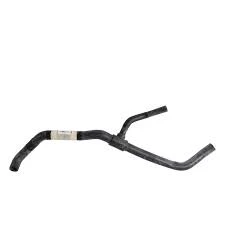Durable Oil Transfer Hose for Efficient Fuel Discharge and Handling Solutions
Nov . 01, 2024 03:55 Back to list
Durable Oil Transfer Hose for Efficient Fuel Discharge and Handling Solutions
Understanding Oil Discharge Hoses Key Features and Applications
Oil discharge hoses are a critical component in various industrial applications, particularly in the oil and gas sector. These hoses are specifically designed to transport oil and other petroleum products safely and efficiently, minimizing the risk of spills and leaks. In this article, we will explore the key features, applications, and maintenance of oil discharge hoses.
Key Features of Oil Discharge Hoses
1. Material Composition Oil discharge hoses are typically constructed from durable materials like rubber, synthetic elastomers, or thermoplastics. These materials are chosen for their resistance to high pressures, abrasions, and chemical reactions with oils and other hydrocarbons.
2. Reinforcement The hoses are reinforced with materials such as steel wire or textile fibers to enhance their strength and flexibility. This reinforcement is crucial for withstanding the harsh conditions often encountered during oil transportation.
3. Temperature Resistance Due to the nature of the products being transported, oil discharge hoses are designed to operate effectively across a wide temperature range. This characteristic ensures that the hoses maintain their integrity and performance even in extreme conditions.
4. Anti-static Properties Many oil discharge hoses are manufactured with anti-static properties to prevent the buildup of static electricity, which can pose a serious safety hazard in the presence of flammable liquids.
Applications of Oil Discharge Hoses
Oil discharge hoses are used in numerous applications, including
- Marine Operations In the maritime industry, these hoses are essential for transferring oil from tankers to storage facilities or offshore platforms. Their design ensures that they can handle the dynamic movements of the marine environment.
oil discharge hose

- Refineries and Chemical Plants In refineries, the transportation of crude oil and refined products relies heavily on effective hose systems. Oil discharge hoses facilitate the movement between storage tanks, processing units, and distribution terminals.
- Construction and Mining These hoses are used in construction and mining operations to handle fuel transfers for machinery and vehicles, ensuring that operations run smoothly and safely.
- Emergency Response Oil spill response teams utilize discharge hoses in containment and recovery operations, allowing for the effective transfer of spilled oil to collection containers.
Maintenance of Oil Discharge Hoses
To ensure optimal performance and longevity, regular maintenance of oil discharge hoses is essential. Here are some maintenance tips
1. Regular Inspections Periodically check hoses for signs of wear, damage, or leaks. Look for abrasions, cuts, or bulges that may compromise the hose's integrity.
2. Proper Storage When not in use, hoses should be stored properly to avoid kinks or damage. Keeping them in a cool, dry place away from direct sunlight can extend their lifespan.
3. Cleaning After transporting oils, it is advisable to clean the hoses to remove any residue. This helps prevent contamination and prolongs the service life of the hose.
4. Temperature Monitoring Always operate hoses within the manufacturer’s specified temperature range to avoid deterioration of the materials.
In conclusion, oil discharge hoses are indispensable in the effective management of oil transportation across various industries. Their robust construction, coupled with proper maintenance and handling practices, ensures safety and reliability in the challenging environments where they are employed. Understanding their features and applications is crucial for anyone involved in the oil and gas industry.
